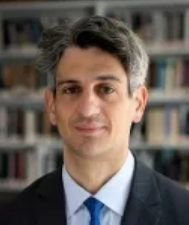Stabilizing Great Power Rivalries

Speaker(s): Mazarr, M. (RAND); Charap, S. (RAND)
Date: 2 March 2022
Speaker Session Summary
SMA hosted a speaker session with Dr. Michael Mazarr (RAND) and Dr. Samuel Charap (RAND) as part of its SMA EUCOM/INDOPACOM Speaker Series.
Ensuring stability between geopolitical rivals can strengthen overall international security and deescalate potentially world-changing conflicts. For a rivalry to be stable, both actors must be able to absorb shocks and stress. Dr. Mazarr commented that today there is more potential for destabilization between states than ever before, more even then during the Cold War. Looking back at historical lessons—especially the Cold War—nuclear deterrence is a key stabilizing factor between states. Dr. Mazarr and Dr. Charap discussed many different indicators of stable relationships between rival states; however, they emphasized that actors’ mutual acceptance of a shared status quo and a resilient equilibrium are strong characteristics of a stable rivalry.
The US-China relationship has both indicators of a stable rivalry and of destabilization. Dr. Charap commented that the paper was written and published long before the current Ukraine-Russia conflict. However, the paper shows that most characteristics of US-Russia policy were more indicative of a destabilizing rivalry than a stable one. The primary findings from the paper include: a) the US should limit threatening signals that could trigger and existential crisis, b) consider the unintended effects of military capability decisions, c) and seek opportunities for transparency and arms control. Dr. Charap emphasized that there were many warning signs of Russia’s invasion into the Ukraine. If these signs were taken seriously, then the conflict may have been avoided. The US should attempt to re-establish formal deconfliction mechanisms to avoid further conflict.
Mazarr and Charap Biographies

Dr. Michael Mazarr is a senior political scientist at the RAND Corporation. Previously he worked at the US National War College, where he was professor and associate dean of academics; as president of the Henry L. Stimson Center; senior fellow at the Center for Strategic and International Studies; senior defense aide on Capitol Hill; and as a special assistant to the Chairman of the Joint Chiefs of Staff. His primary interests are US defense policy and force structure, disinformation and information manipulation, East Asian security, nuclear weapons and deterrence, and judgment and decision making under uncertainty. Dr. Mazarr holds a PhD in public policy from the University of Maryland.

Dr. Samuel Charap is a senior political scientist at the RAND Corporation. His research interests include the foreign policies of Russia and the former Soviet states; European and Eurasian regional security; and US-Russia deterrence, strategic stability, and arms control. From November 2012 until April 2017, Charap was the senior fellow for Russia and Eurasia at the International Institute for Strategic Studies. Prior to joining the IISS, he served at the US Department of State as senior advisor to the undersecretary for Arms Control and International Security and on the Secretary’s Policy Planning Staff, covering Russia and Eurasia. From 2009 to 2011,Charap was director for Russia and Eurasia at the Center forAmerican Progress. Charap's book on the Ukraine crisis, Everyone Loses: The Ukraine Crisis and the Ruinous Contest for Post-Soviet Eurasia (coauthored with Timothy Colton), was published in January2017. His articles have appeared in The Washington Quarterly, Foreign Affairs, Survival, Current History and several other journals. Charap was a visiting scholar at the Carnegie Moscow Center and the International Center for Policy Studies (Kyiv), and a Fulbright Scholar at the Moscow State Institute ofInternational Relations. He is fluent in Russian and proficient in Ukrainian. Charap holds a PhD in political science and an MPhil in Russian and East European studies from the University of Oxford, where he was a Marshall Scholar. He received his BA in Russian and political science from Amherst College. He is a life member of the Council on Foreign Relations.
